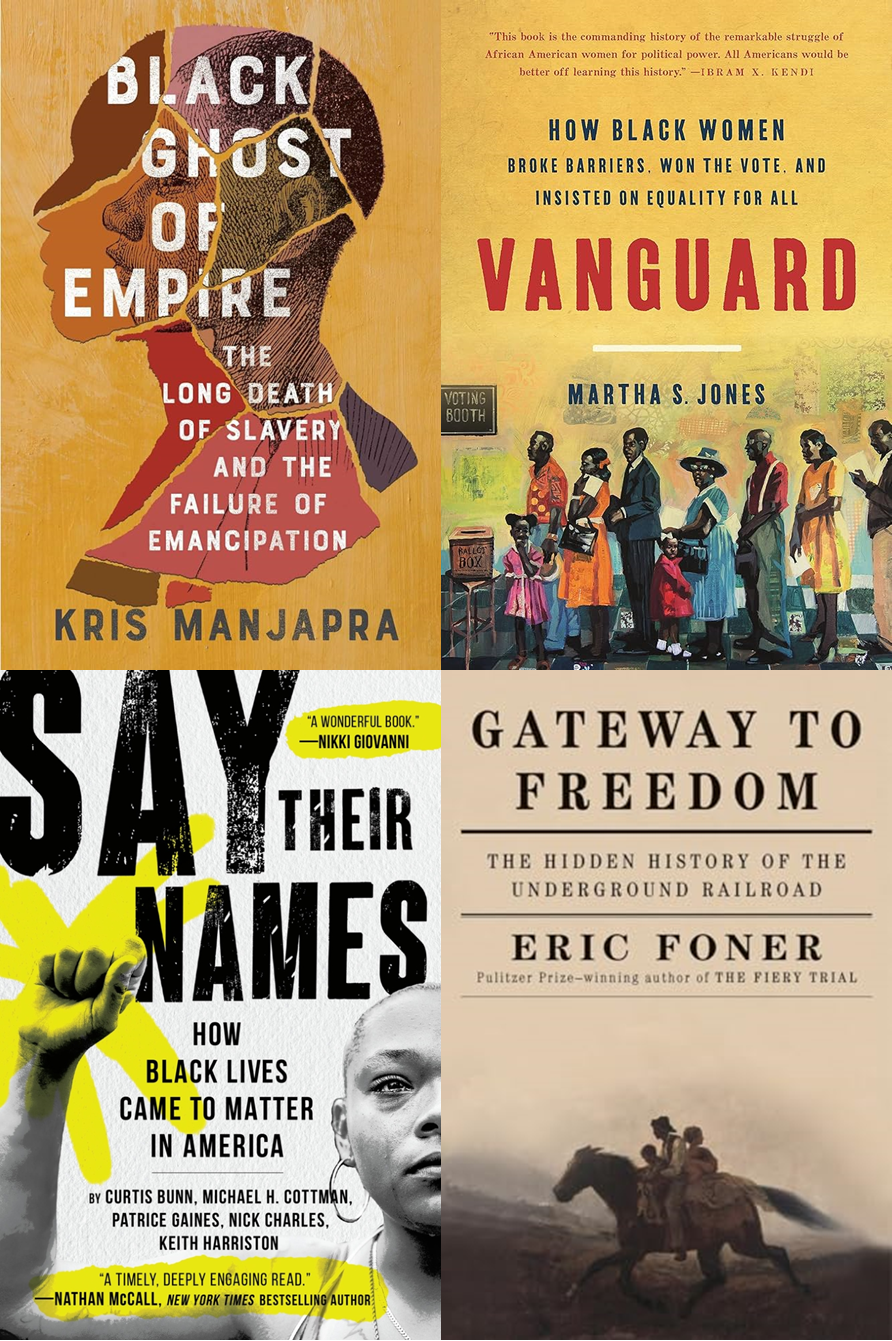 From the Civil War, to the 1960s Civils Rights Movement, to Black Lives Matter—these books from our nonfiction collection are essential reads for Black History Month.
From the Civil War, to the 1960s Civils Rights Movement, to Black Lives Matter—these books from our nonfiction collection are essential reads for Black History Month.
Gateway to Freedom: The Hidden History of the Underground Railroad by Eric Foner
– Feminist, Activism, Social Justice in the 1960s
In Vanguard, acclaimed historian Martha S. Jones offers a new history of African American women’s political lives in America. She recounts how they defied both racism and sexism to fight for the ballot, and how they wielded political power to secure the equality and dignity of all persons. From the earliest days of the republic to the passage of the 1965 Voting Rights Act and beyond, Jones excavates the lives and work of black women—Maria Stewart, Frances Ellen Watkins Harper, Fannie Lou Hamer, and more—who were the vanguard of women’s rights, calling on America to realize its best ideals.
-George Floyd Murder, Racial disparity, Ferguson, societal change
For many, the story of the weeks of protests in the summer of 2020 began with the horrific nine minutes and twenty-nine seconds when Police Officer Derek Chauvin killed George Floyd on camera, and it ended with the sweeping federal, state, and intrapersonal changes that followed. It is a simple story, wherein white America finally witnessed enough brutality to move their collective consciousness. The only problem is that it isn’t true. George Floyd was not the first Black man to be killed by police—he wasn’t even the first to inspire nation-wide protests—yet his death came at a time when America was already at a tipping point.
In Say Their Names, five seasoned journalists probe this critical shift. With a piercing examination of how inequality has been propagated throughout history, from Black imprisonment and the Convict Leasing program to long-standing predatory medical practices to over-policing, the authors highlight the disparities that have long characterized the dangers of being Black in America. They examine the many moderate attempts to counteract these inequalities, from the modern Civil Rights movement to Ferguson, and how the killings of George Floyd, Breonna Taylor and others pushed compliance with an unjust system to its breaking point. Finally, they outline the momentous changes that have resulted from this movement, while at the same time proposing necessary next steps to move forward.
-Emancipation, Slavery around the world, social justice, racial caste system
Ranging across the Americas, Europe and Africa, Manjapra unearths disturbing truths about the Age of Emancipations, 1780-1880. In Britain, reparations were given to wealthy slaveowners, not the enslaved, a vast debt that was only paid off in 2015, and the crucial role of Black abolitionists and rebellions in bringing an end to slavery has been overlooked. In Jamaica, Black people were liberated only to enter into an apprenticeship period harsher than slavery itself. In the American South, the formerly enslaved were ‘freed’ into a system of white supremacy and racial terror. Across Africa, emancipation served as an alibi for colonization. None of these emancipations involved atonement by the enslavers and their governments for wrongs committed, or reparative justice for the formerly enslaved-an omission that grassroots Black organizers and activists are rightly seeking to address today.
#FDL is a weekly update on all things Fondulac District Library and books.

